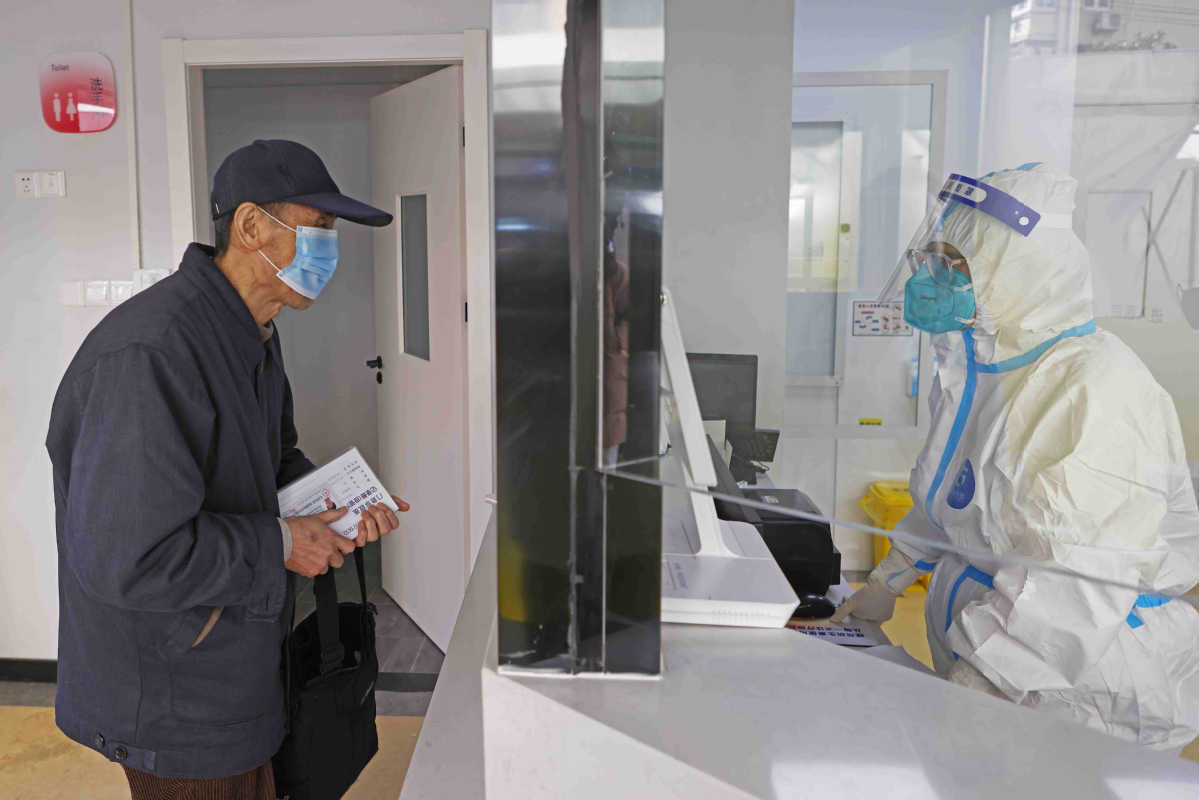Warning mechanism to provide real-time information


Beijing has established a comprehensive monitoring and early warning system for novel coronavirus infection via multiple channels and sources, in order to get real-time information about the epidemic situation and development trends, a senior official said on Friday.
The system covers detection and monitoring in many sectors, including residents' nucleic acid and antigen tests, COVID-19 cases in medical institutions, community infection level, nucleic acid tests of entry personnel, COVID-19 etiology, as well as the city's students' symptoms, population mobility and sewage monitoring, Li Ang, deputy head of the Beijing Health Commission, said at a news conference.
"Through the system, the authority will assess the risks of the COVID-19 epidemic in a timely manner and take prevention and control measures accordingly," he said.
The Beijing government has made a work plan for COVID-19 prevention and control to ensure people's health and prevent severe cases.
The plan has five special programs, including the monitoring system mentioned above, community health service for key groups of residents, and control and prevention in rural area, schools and nursing homes.
"The target of community control and prevention is to satisfy the health service needs of seniors, especially those aged above 65, pregnant women, children and the disabled," Wang Daguang, deputy head of the community prevention and control office under the city's epidemic control authority, said at the conference.
The communities will work on discovering the potential risks at an early stage, in order to reduce the number of severe cases, he said.
Health service centers at the community level will complete health information of key groups of people in their areas to offer corresponding services. Family doctors will increase their communication with residents.
The government will give policy support to and increase the investments in community health service centers. Medicines and medical equipment will be supplied and medical staff will be increased.
In rural areas, Beijing will ensure the supply of test kits and medicines. The authority will improve the emergency transport system by adding ambulances and organizing a batch of vehicles that can be used for transporting patients.
"In rural areas, fairs and shows will be held with less frequency and people are still encouraged to not hold weddings and birthday parties, or hold them in a simpler way," said Kang Sen, deputy head of the city's agriculture and rural affairs bureau.
Schools and nursing homes in Beijing have adjusted their control and prevention measures.
"Schools and kindergartens will not conduct mass nucleic acid tests," said Li Yi, spokesman of the city's education commission.
However, the city has said that negative nucleic acid test results are required before entering nursing homes.
- Senior Xi'an official facing probe by China's anti-corruption watchdogs
- Philippines risks creating trouble for itself: China's defense ministry
- Newborn with congenital heart disease receives life-saving surgery in Yunnan
- Hong Kong charity signs diplomatic talent deal with Beijing university
- Aircraft carrier Fujian, commissioned
- Erdos offers 10,000 yuan subsidy for families having third child



































